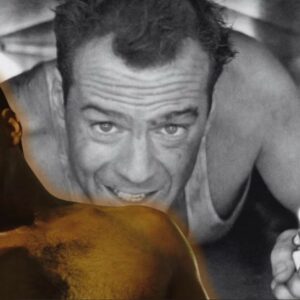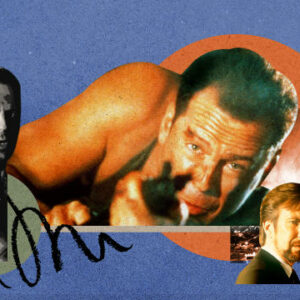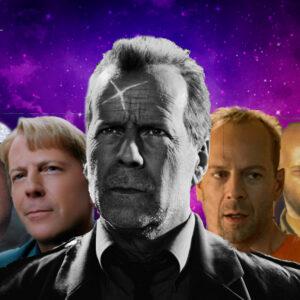Quentin Tarantino’s Once Upon a Time in Hollywood is as much a love letter to 1960s Los Angeles as it is a vivid tapestry of the people who populated its film industry. Yet within its sprawling narrative and kaleidoscopic setting, few characters emerge with as much gravitas as Cliff Booth, portrayed by Brad Pitt. Tarantino’s deft direction and Pitt’s powerful performance culminate in a character who epitomizes the grit and mystique of old Hollywood. To understand Cliff Booth is to delve into his complex background, his unique personality traits, his bond with Rick Dalton, and his embodiment of a Hollywood ethos fading into history.
Cliff Booth’s Background: A Warrior in Civilian Clothes
Cliff Booth enters the narrative as Rick Dalton’s stunt double, confidant, and loyal companion, but his story stretches well beyond that. Cliff is a World War II veteran—a man shaped by war and accustomed to violence. This military background becomes a key to understanding Cliff’s stoic nature and physical resilience. The film never explicitly details Cliff’s service record, but there are hints throughout the narrative: his calm under pressure, his tactical precision, and his almost eerie sense of fearlessness all point to a past steeped in the horrors of war.
In many ways, Cliff’s military history casts a shadow over his interactions and his outlook on life. He is perpetually unruffled, never panicked, and rarely sentimental, suggesting a man who has experienced so much chaos that the challenges of civilian life barely register. This hardened demeanor also creates an impenetrable wall between Cliff and the rest of the world, rendering him a man of mystery. Tarantino purposefully leaves out the details of Cliff’s wartime exploits, allowing the audience to speculate and interpret his actions through this context. It is perhaps because of this ambiguity that Cliff Booth is as alluring as he is. His past is both mythic and foreboding, creating a character that seems as ageless and resilient as the Hollywood hills themselves.
The Personality of Cliff Booth: Fearlessness, Loyalty, and Detachment
Cliff Booth’s character is not just an artifact of his past experiences; it is also defined by intrinsic personality traits that set him apart from the Hollywood crowd. Cliff is, above all, fiercely loyal. His loyalty to Rick Dalton transcends the standard employer-employee relationship. For Cliff, being Rick’s stunt double isn’t simply about mimicking physicality for the camera—it’s about supporting a friend through thick and thin, embodying the unwavering constancy that Hollywood friendships often lack. Whether he’s chauffeuring Rick around Los Angeles or offering a shoulder to lean on during moments of doubt, Cliff stands as a pillar in Rick’s tumultuous life, proving himself as dependable as he is resilient.
His fearlessness is another trait that stands out in the film. Cliff’s complete absence of fear borders on the supernatural; he’s unfazed by the looming threats of the Manson Family or the various dangers of his profession. His detachment from fear may stem from his wartime experiences or his general disillusionment with the Hollywood dream, but it also manifests as a profound apathy toward the dangers he encounters. This lack of fear often lands him in morally ambiguous territory, as he sometimes appears indifferent to societal norms or rules. When he confronts the Manson Family members at Spahn Ranch, Cliff’s fearlessness creates a jarring contrast between him and the volatile youth surrounding him, further underscoring his role as a relic of a different era—one marked by rugged individualism rather than blind rebellion.
Yet, this fearlessness is tempered by a sense of detachment. Cliff is a character deeply grounded in the present, never overly nostalgic about the past or anxious about the future. This detachment lends him a Zen-like quality; he doesn’t strive for fame or fortune but instead moves through life with a quiet contentment, unconcerned with Hollywood’s glitz or glamour. For Cliff, loyalty to Rick and his day-to-day existence are enough. His interactions with others are sparse and often tinged with dark humor, reflecting a worldview that is at once pragmatic and emotionally restrained. In many ways, Cliff’s outlook mirrors the fading Hollywood he inhabits—a world with little patience for pretense, where survival and loyalty matter more than applause or recognition.
Cliff and Rick Dalton: A Bond Forged in Loyalty
The relationship between Cliff Booth and Rick Dalton lies at the heart of Once Upon a Time in Hollywood. Cliff serves as Rick’s double on screen, but his role goes much deeper offscreen. In a city where friendships are often fleeting and transactional, Cliff and Rick’s relationship is marked by genuine loyalty and mutual respect. Their bond is a rare Hollywood friendship that transcends superficiality, reflecting a bond that is rooted in both familiarity and dependence. Rick’s career is on the decline, and his self-worth is crumbling alongside it. In Cliff, Rick finds an unwavering ally who doesn’t judge him for his failures or his declining status. Cliff’s loyalty is grounded in a deep understanding of Rick’s vulnerabilities, and he supports Rick without judgment, offering the stability and reassurance that his friend so desperately needs.
For Cliff, his loyalty to Rick is almost paternal, or perhaps that of a soldier toward a fallen comrade. He recognizes Rick’s flaws, insecurities, and moments of weakness, yet he stays by his side, providing a sense of normalcy and camaraderie that Hollywood often lacks. Rick’s dependence on Cliff, both as a stunt double and as a friend, reveals the depth of their connection. Their relationship is both a commentary on the transient nature of Hollywood friendships and a nostalgic nod to a time when loyalty was valued above self-interest. Cliff’s steadfastness helps Rick endure the darker moments of his career, creating a dynamic that elevates their friendship to one of mutual survival and resilience. Through Cliff and Rick’s relationship, Tarantino reveals the enduring appeal of loyalty and friendship, especially in an industry known for its fickleness and superficiality.
Embodying Hollywood’s Golden Era: Cliff as a Symbol of Self-Reliance and Rugged Individualism
Cliff Booth stands as a symbol of Hollywood’s bygone Golden Era—a time when heroes were defined by self-reliance and rugged masculinity. Cliff is an archetype of the old Hollywood stuntman, a relic of an industry that valued physicality and resilience over image and reputation. In a world transitioning into the glamour of modern-day Hollywood, Cliff’s rugged individualism and indifference to fame reflect a time when authenticity held more value than box office receipts.
Cliff’s journey through the film mirrors the broader transformation of Hollywood in the late 1960s, where the industry began shifting away from Westerns and gritty adventure films toward a more sanitized, commercialized landscape. Cliff’s very presence in the film serves as a reminder of Hollywood’s past—a past marked by stoic heroes and morally complex characters who operated outside the bounds of traditional morality. He embodies the fading spirit of old Hollywood: a world where men like him could thrive as unsung heroes, performing dangerous stunts and bringing authenticity to the screen without seeking the spotlight. Tarantino’s reverence for this bygone era is palpable through Cliff, whose refusal to conform to the shifting tides of Hollywood represents a quiet rebellion against an industry that has lost its way.
The Role of Tarantino’s Direction and Pitt’s Performance
Tarantino’s direction, known for its nuanced character studies and attention to historical detail, provides a perfect canvas for Cliff Booth. Through Tarantino’s lens, Cliff becomes more than just a sidekick or a stuntman; he transforms into a complex, multi-dimensional figure who straddles the line between reality and myth. Tarantino’s narrative choices—the ambiguity surrounding Cliff’s past, his interactions with the Manson Family, and his unwavering support for Rick—create a character who is as enigmatic as he is grounded. The dialogue, cinematography, and pacing all serve to deepen our understanding of Cliff, revealing nuances of his personality that would otherwise remain hidden.
Brad Pitt’s performance is essential in bringing Cliff Booth to life. Pitt’s portrayal is one of subtlety and restraint, capturing Cliff’s stoicism and detachment without descending into caricature. His physicality and presence on screen are magnetic, yet his interactions and expressions are minimalist, conveying Cliff’s internal world with quiet intensity. Pitt’s nuanced performance emphasizes the duality of Cliff’s character—a man both gentle and ruthless, loyal yet morally ambiguous. The physicality he brings to the role—whether calmly scaling Rick’s roof or taking on the Manson Family at Spahn Ranch—emphasizes Cliff’s capability and resilience, grounding him firmly within the Hollywood he represents.
In many ways, Cliff Booth is the quintessential Tarantino character, brought to life through Pitt’s Oscar-winning performance. Together, they create a character who stands as both a critique and celebration of Hollywood’s Golden Age, embodying the contradictions and complexities of a time when the film industry was transitioning from rugged individualism to mainstream commercialism.
Conclusion: Cliff Booth, Hollywood’s Last Cowboy
In Once Upon a Time in Hollywood, Cliff Booth emerges as a figure both timeless and transient, a character whose presence serves as a farewell to an era defined by grit, loyalty, and self-reliance. Tarantino’s direction and Pitt’s performance come together to create a character who resonates deeply, embodying the ethos of a Hollywood that no longer exists. Through his courage, loyalty, and detachment, Cliff represents a breed of Hollywood figures who lived in the shadows, performing dangerous feats without seeking fame or fortune. He is Hollywood’s last cowboy, a man whose journey through the industry reflects the beauty and tragedy of an era coming to an end. In Cliff Booth, Tarantino captures the essence of old Hollywood, honoring its spirit even as he acknowledges its inevitable decline.





